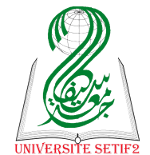| Titre : |
Artisans and narrative craft in late medieval england |
| Type de document : |
texte imprimÃĐ |
| Auteurs : |
Lisa H.Cooper |
| Editeur : |
New York : Cambridge university press |
| AnnÃĐe de publication : |
2011 |
| Importance : |
278p |
| PrÃĐsentation : |
ill en col |
| Format : |
23cm |
| ISBN/ISSN/EAN : |
978-0-521-76897-9 |
| Note gÃĐnÃĐrale : |
Index |
| Langues : |
Anglais (eng) Langues originales : Anglais (eng) |
| Mots-clÃĐs : |
Artisans/Narrative craft/Medieval england |
| RÃĐsumÃĐ : |
Lisa H. Cooper offers new insight into the relationship of material practice and literary production in the Middle Ages by exploring the representation of craft labor in England from c.1000â1483. She examines genres as diverse as the school-text, comic poem, spiritual allegory, and mirror for princes, and works by authors both well known (Chaucer, Lydgate, Caxton) and far less so. Whether they represent craft as profitable endeavor, learned skill, or degrading toil, the texts she reviews not only depict artisans as increasingly legitimate members of the body politic, but also deploy images of craft labor and its products to confront other complex issues, including the nature of authorship, the purpose of community, the structure of the household, the fate of the soul, and the scope of princely power. Table of Contents Introduction: a is for artisan 1. Making conversations: from lfric's Colloquy to Caxton's Dialogues 2. Laboring legends: writing home in fable and fabliau 3. Shaping souls: artisanal allegory in the Pilgrimage poems of Guillaume de Deguileville and John Lydgate 4. Mirroring monarchs: Rex/Artifex in the Speculum Principum tradition Epilogue: crafting nostalgias |
Artisans and narrative craft in late medieval england [texte imprimÃĐ] / Lisa H.Cooper . - New York : Cambridge university press, 2011 . - 278p : ill en col ; 23cm. ISBN : 978-0-521-76897-9 Index Langues : Anglais ( eng) Langues originales : Anglais ( eng)
| Mots-clÃĐs : |
Artisans/Narrative craft/Medieval england |
| RÃĐsumÃĐ : |
Lisa H. Cooper offers new insight into the relationship of material practice and literary production in the Middle Ages by exploring the representation of craft labor in England from c.1000â1483. She examines genres as diverse as the school-text, comic poem, spiritual allegory, and mirror for princes, and works by authors both well known (Chaucer, Lydgate, Caxton) and far less so. Whether they represent craft as profitable endeavor, learned skill, or degrading toil, the texts she reviews not only depict artisans as increasingly legitimate members of the body politic, but also deploy images of craft labor and its products to confront other complex issues, including the nature of authorship, the purpose of community, the structure of the household, the fate of the soul, and the scope of princely power. Table of Contents Introduction: a is for artisan 1. Making conversations: from lfric's Colloquy to Caxton's Dialogues 2. Laboring legends: writing home in fable and fabliau 3. Shaping souls: artisanal allegory in the Pilgrimage poems of Guillaume de Deguileville and John Lydgate 4. Mirroring monarchs: Rex/Artifex in the Speculum Principum tradition Epilogue: crafting nostalgias |
|  |
 Accueil
Accueil


 Affiner la recherche
Affiner la recherche


